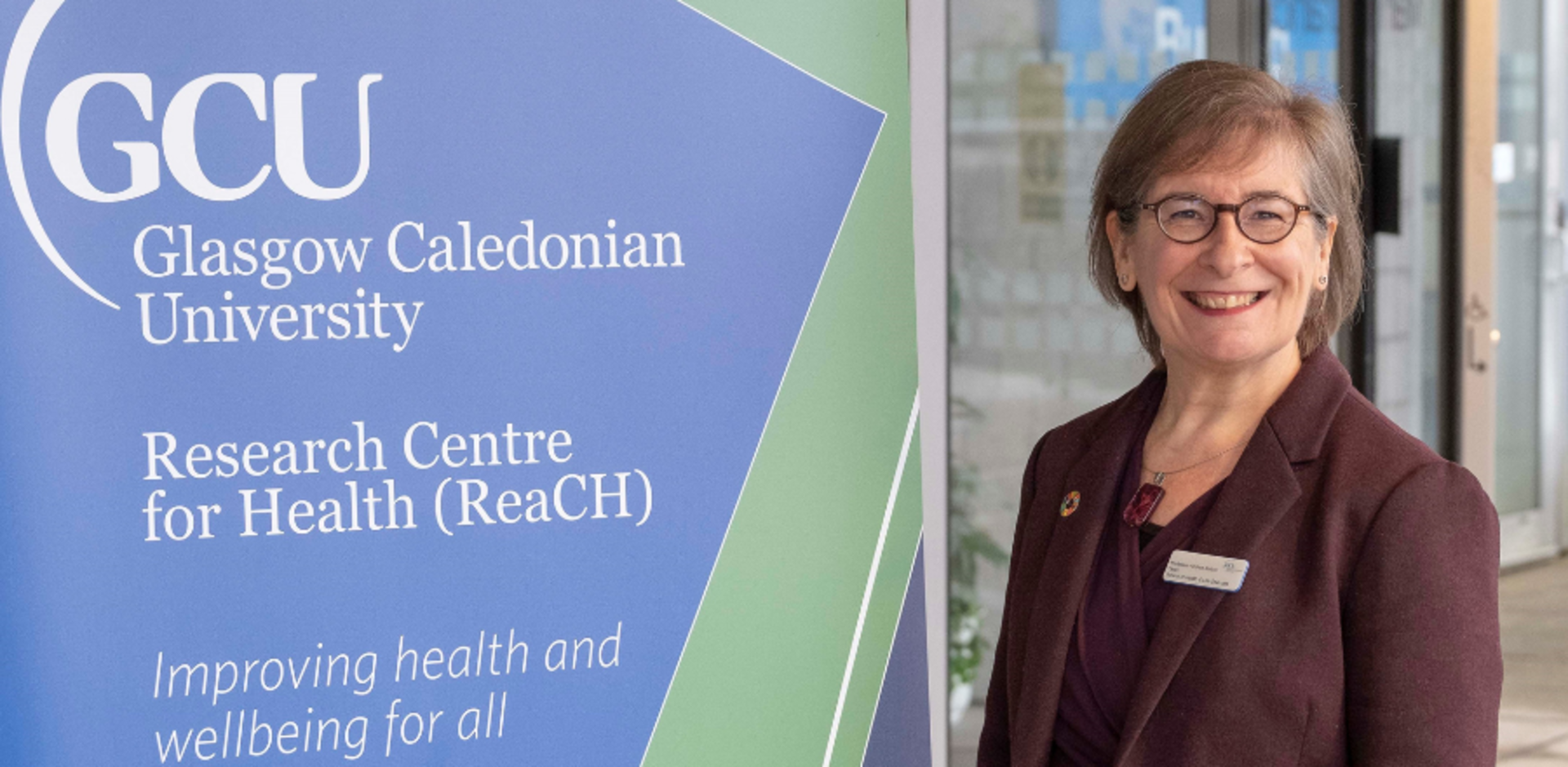Spotlight on life-changing health research with launch of new centre of excellence

A new Research Centre for Health (ReaCH) has been launched to reflect the increased impact of life-changing research, both nationally and internationally, at Glasgow Caledonian University (GCU).
The renaming of the Centre for Living to ReaCH, with its strapline ‘Improving health and wellbeing for all’, highlights the direct and significant contribution our research makes to the UN Sustainable Development Goal 3 to ‘ensure healthy lives and promote wellbeing for all at all ages’.
The Centre showcases the work undertaken in our research groups in the themes of public health: Ageing Well; Child and Adolescent Health; Safeguarding Health through Infection Prevention (SHIP); Sexual Health and Blood Borne Viruses; Substance Use; and long term conditions: Living with Stroke and other Long Term Conditions; Molecular Mechanisms of Long Term Conditions; Musculoskeletal Health; and Vision Research.
Colleagues in the Chief Scientist Office funded Nursing, Midwifery and Allied Health Professions Research Unit (NMAHP) and Public Health Scotland also contribute to the centre.
The new centre name also underpins the University’s reasons for carrying out evidence-based applied health research, which is to reach out to communities as part of our Common Good philosophy to make a real difference to the quality of people’s lives in Scotland and around the world.
GCU School of Health and Life Sciences Dean and Director of the Research Centre for Health, Professor Andrea Nelson, explained why the name change was necessary: “With our last name which was the Centre for Living – that embodied our focus on life – a life that’s worth living, however, what it didn’t embody was our real ambition to reach out into communities to understand what their real problems and uncertainties are within the communities we live in and people we work with.
“This change of centre name embodies that active going out and seeking partnership and the active invitation for communities to reach into the university to build partnerships with us because that is what GCU is all about. Our research is not for the researchers, it is for the Common Good to help people out in the communities because if it’s kept within an academic sphere it’s not reaching the people it needs to reach and its full potential.
“We also work collaboratively and reach out to other institutions, as well as health and social care professionals, making sure our research is based on current high-quality evidence underpinned by international bodies of literature.
“The focus at GCU is on the translational elements of research. How do you translate knowledge into action? We have the people and the community very much at the focus of all our research. We almost start from them as the question, then pool the knowledge downstream. We are improving lives all over Scotland, the rest of the UK and internationally.
“A lot of the work we do is the basis of international exemplar practice guidelines. A lot of the areas of work we do are an exemplar of public health like Hepatitis C and infection control. We are internationally renowned exemplars of how you do research that makes life-changing impact. Our research is all about collaboration with people with different skills, perspectives and contributions to make, particularly with our communities of influence in practice, partly framing the questions and co-creating the answers with us.
“That’s where we have particular expertise. Our focus on the United Nations sustainable development goals include good health and wellbeing and partnerships, sustainable cities and communities, and reduced inequalities. They were important priorities before the Coronavirus outbreak. The pandemic has thrown into sharp relief the importance of some of our research areas like public health and infection control.”
SHLS Associate Dean Professor Kay Currie said the pandemic has raised the global importance of the UN Sustainable Development Goals and the strategic focus of the University.
She added: “Another reason the new Centre name works so well is that it highlights how we reach out to research centres in other Schools across the University, working collaboratively in areas like water and sanitation, which is really important internationally around COVID-19.
“The vision and ambition of the Centre for Living was innovative and visionary, expressed by reaching into the community and across different academic disciplines, but what it lacked, and what we hope the new Centre will bring, is to literally do what it says on the tin so that it’s really obvious to everyone what our work is about; research for health and wellbeing. The researchers have welcomed that. It is focussing on research for health and reaching out into the community and bringing the community in to co-create useful, valuable knowledge for us that relates to sustainable development goals.”
Find out more on the new ReaCH website here.
